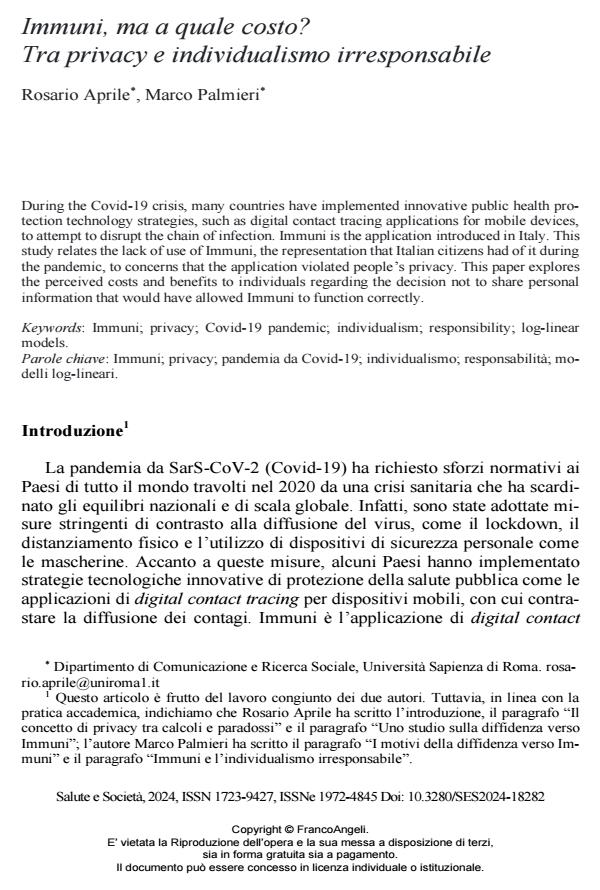Immuni, ma a quale costo? Tra privacy e individualismo irresponsabile
Journal title SALUTE E SOCIETÀ
Author/s Rosario Aprile, Marco Palmieri
Online First 11/13/2024 Issue 2024/Online First
Language Italian Pages 15 P. 1-15 File size 315 KB
DOI 10.3280/SES2024-18282
DOI is like a bar code for intellectual property: to have more infomation
click here
Below, you can see the article first page
If you want to buy this article in PDF format, you can do it, following the instructions to buy download credits

FrancoAngeli is member of Publishers International Linking Association, Inc (PILA), a not-for-profit association which run the CrossRef service enabling links to and from online scholarly content.
During the Covid-19 crisis, many countries have implemented innovative public health pro-tection technology strategies, such as digital contact tracing applications for mobile devices, to attempt to disrupt the chain of infection. Immuni is the application introduced in Italy. This study relates the lack of use of Immuni, the representation that Italian citizens had of it during the pandemic, to concerns that the application violated people’s privacy. This paper explores the perceived costs and benefits to individuals regarding the decision not to share personal information that would have allowed Immuni to function correctly.
Keywords: Immuni; privacy; Covid-19 pandemic; individualism; responsibility; log-linear models.
Rosario Aprile, Marco Palmieri, Immuni, ma a quale costo? Tra privacy e individualismo irresponsabile in "SALUTE E SOCIETÀ" Online First/2024, pp 1-15, DOI: 10.3280/SES2024-18282